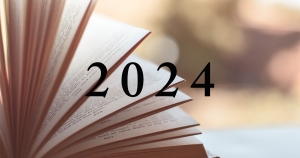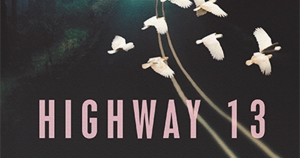Geordie Williamson
Geordie Williamson reviews ‘Highway 13’ by Fiona McFarlane
Jorge Luis Borges thought the appearance of a major new author or creative work should prompt a realignment of literature’s family tree. Fresh genealogies of influence suddenly manifested, while old antecedents could find themselves pruned to a nub. Borges knew that actions in the present can remake our sense of past and future both.
... (read more)What the authors of these three wildly different books share is a gift for creating through language a kind of intimacy of presence, as though they were in the room with you. Emily Wilson’s much-awaited translation of The Iliad (W.W. Norton & Company) is a gorgeous, hefty hardback with substantial authorial commentary that manages to be both scholarly and engaging. The poem is translated into effortless-looking blank verse that reads like music. The Running Grave (Sphere) by Robert Galbraith (aka J.K. Rowling), the seventh novel in the Cormoran Strike crime series and one of the best so far, features Rowling’s gift for the creation of memorable characters and a cracking plot about a toxic religious cult. Charlotte Wood’s Stone Yard Devotional (Allen & Unwin, reviewed in this issue of ABR) lingers in the reader’s mind, with the haunting grammar of its title, the restrained artistry of its structure, and the elusive way that it explores modes of memory, grief, and regret.
... (read more)When pushed to vote on the bleakest poem among Philip Larkin’s death-obsessed body of work, most would likely stump for his late masterpiece ‘Aubade’, that arid interrogation of human finitude. Yet his ‘The Building’, from 1972, is in many ways a more savage appraisal of individual extinction and the structures we build in an attempt to deny it: ‘Higher than the handsomest hotel / The lucent comb shows up for miles …’ Larkin was referring here to the Hull Royal Infirmary, a modernist pile which loomed over the poet’s hometown after it opened in 1967. Yet the poem could just as easily be translocated to Rochester, Minnesota, where the substantial modern tower of the Mayo Clinic stands: a building around which, too, surrounding streets stand like ‘a great sigh out of the last century’.
... (read more)This week, on the ABR podcast, literary critic and editor Geordie Williamson reviews J.M. Coetzee’s new short story collection The Pole and Other Stories. At the age of eighty-three Coetzee has again proved himself a ‘true and loving creator’, argues Williamson, by denying his characters endings or wholeness – ‘the great lie of art’. Listen to Geordie Williamson with ‘Last things: J.M. Coetzee’s antipodal forces’, published in the July issue of ABR.
... (read more)Geordie Williamson reviews 'The Pole and Other Stories' by J.M. Coetzee
The aphorist Georg Christoph Lichtenberg likened reviews to ‘a kind of childhood illness to which newborn books are subject to a greater or lesser degree’, like measles or mumps, which kill a few but leave the rest only mildly marked. But how should we consider reviews of books that come late in an author’s career? In instances such as these, the reviewer is tempted to avoid any chance of career-ending pneumonia, applying a nurse’s gentling touch to the text. Often the result is career summation, a soft peddle at indications of decline.
... (read more)Geordie Williamson reviews 'Victory City' by Salman Rushdie
Salman Rushdie has long inspired ambivalence among readers. His talent has never been seriously in question – witness the swift canonisation and enduring affection accorded his second novel, Midnight’s Children (1981) – nor have his bona fides as a public intellectual who has stood against intolerance and cant, even under the threat of death. Yet his body of work has been marked by fictions that run the gamut from interestingly flawed to merely self-indulgent.
... (read more)Geordie Williamson reviews 'Eggs for Keeps: Poetry reviews and other praise' by Barry Hill
'The point is to deal with the stuff itself,’ wrote John Berryman. He was referring to Randall Jarrell, paragon of mid-century poet-critics – one who did, indeed, deal with the stuff itself, writing of poetry with the practical competence of a mechanic who knew his way around an engine, having built a few himself – but he could just as easily be speaking of Barry Hill.
... (read more)Geordie Williamson reviews 'The Last Days of Roger Federer: And other endings' by Geoff Dyer
As chance would have it, this review was written following the retirement, aged forty-one, of Roger Federer from top-tier competitive tennis. Federer’s decision might be regarded as tricky for Geoff Dyer, since his latest work of essayistic autofiction leans heavily on the notion that while Federer, one of the giants of the sport, is forever about to retire, he never actually does.
... (read more)John Updike said of his most enduring creation, Harry ‘Rabbit’ Angstrom, that he was a version of the author who never went to college. Roland Baine, protagonist of Lessons, is something similar: a McEwan that failed. He’s a man whose early gifts aren’t brought to fruition. His closest brush with literary fame is brief: early marriage to a woman who becomes the kind of artist he could never be. Roland does not possess the requisite ruthless ambition; he lacks the splinter of ice in the heart. He’s a sensualist by inclination and passive by nature – a born helpmeet and second stringer who cobbles together a working life as a lounge-bar pianist and part-time tennis instructor.
... (read more)









